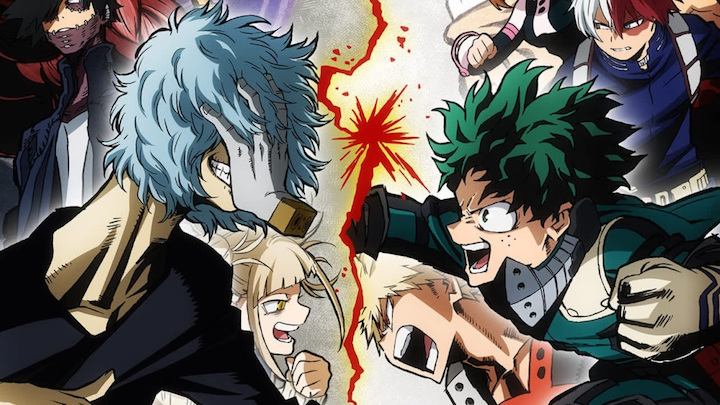Amidst discussions of Japan’s animation industry proving a formidable opponent to Western Animation comes the perhaps surprising reveal that many believe Anime to be in trouble. Despite Japan’s strong showing at the world’s most important animation festival — with 3 entries in Annecy Animation Festival’s 10 Feature Films — artists place structural problems as the main hindrance to the industry. Agence France-Presse reports that it is the reality of long working hours, laughably low salaries, and a scarcity of artists that have classified the current setting of Japan’s animation industry to be in crisis.
Image Courtesy of Funimation
According to Yoshiaki Nishimura, producer of Oscar-nominated The Tale of The Princess Kaguya, the industry struggles to “face up to a lack of animators, bad working conditions and perhaps a lack of creativity.” These ‘bad working conditions’ often contribute to burn-out as well, with animators working 12-18 hour workdays and discouraging them from further pursuing the craft.
(5 Underrated Anime TV Shows that Deserve Your Attention)
This sentiment is echoed by Keiichi Hara (The Wonderland, Miss Hokusai) when he claimed that “perhaps the biggest problem in the Japanese animation industry is that there are no more young animators.” Depleting talent doesn’t only point towards less manpower but also signifies a more limited sense of creativity.
(WATCH: New Pinoy anime ‘Sepak Takraw’ in the works)
Surprisingly, these issues are present even with the most established of the industry. Mamoru Hosoda, who is considered an industry heavyweight through his work Wolf Children and The Girl Who Leapt Through Time, has been a victim to these conditions too. The amount of time he is forced to spend in the studio has forced his wife to call herself “a widow to his work.”
(WATCH: ‘Your Name’ Director Makoto Shinkai Returns for Another Heart-wrenching Film)
Still, as Japanese Anime gains popularity with global audiences there is hope for the industry to be properly appreciated back home. Amel Lacombe, who owns the French animation distributor ‘Eurozoom’, believes Japan is simply in a period of adjustment. That as demand for anime grows, as will the industry’s ability to match it.
What do you think about this?





